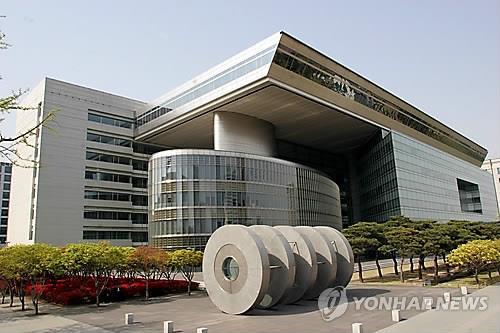Policy banks cautioned on increased corporate lending
By Park Hyung-kiPublished : April 25, 2016 - 15:19
Korea’s state-run policy banks have been questioned on whether they can withstand potential debt fallout from companies facing marginal or weak profitability, with lenders’ capital buffering capability falling on increased loans to financially instable conglomerates.
A report by the Korea Development Institute showed that the country’s two main policy lenders – Korea Development Bank and the Korea Export-Import Bank – extended loans worth 82 trillion won ($70 billion) two years ago, up from 34 trillion won at the height of the global financial crisis in 2008.
A report by the Korea Development Institute showed that the country’s two main policy lenders – Korea Development Bank and the Korea Export-Import Bank – extended loans worth 82 trillion won ($70 billion) two years ago, up from 34 trillion won at the height of the global financial crisis in 2008.

Loans to marginally-weak conglomerates accounted for more than 12 percent of the total, up from about 2 percent in 2009. The policy lending portion to conglomerates, in general, reached a record of 47.5 percent of the total, up from about 31 percent in the same period.
KDB and Eximbank’s loans to conglomerates have been increasing, following calls for countermeasure support to domestic companies against the crisis. The Bank of Korea defines those that fail to pay interest expenses due to low operating profit for three straight years as marginal companies.
Eximbank saw its BIS capital adequacy ratio reach around 10 percent on increased corporate lending, well below that of commercial lenders’ average of 14.85 percent, the state-run research KDI noted. KDB’s ratio is higher than Eximbank at 14.28 percent.
With industries such as shipping, shipbuilding and other manufacturers expected to go through debt-restructuring soon, this financial burden will inevitably fall on taxpayers, observers said.
“To pursue restructuring and clear bad debt, lenders will need to increase their capital base,” Finance Minister Yoo Il-ho recently told reporters. “We are considering many options.”
Last year, state-run researcher KDI had reported that KDB and Eximbank were too slow in spotting corporate vulnerability and pursuing creditor-led restructuring. In an analysis of 39 listed companies, policy banks pursued corporate restructuring more than a year after companies had shown that they could not pay interest to the banks.
Financial policymakers and regulators are expected to gather on Tuesday to map out corporate restructuring plans.
By Park Hyong-ki (hkp@heraldcorp.com)










![[Hello India] Hyundai Motor vows to boost 'clean mobility' in India](http://res.heraldm.com/phpwas/restmb_idxmake.php?idx=644&simg=/content/image/2024/04/25/20240425050672_0.jpg&u=)








